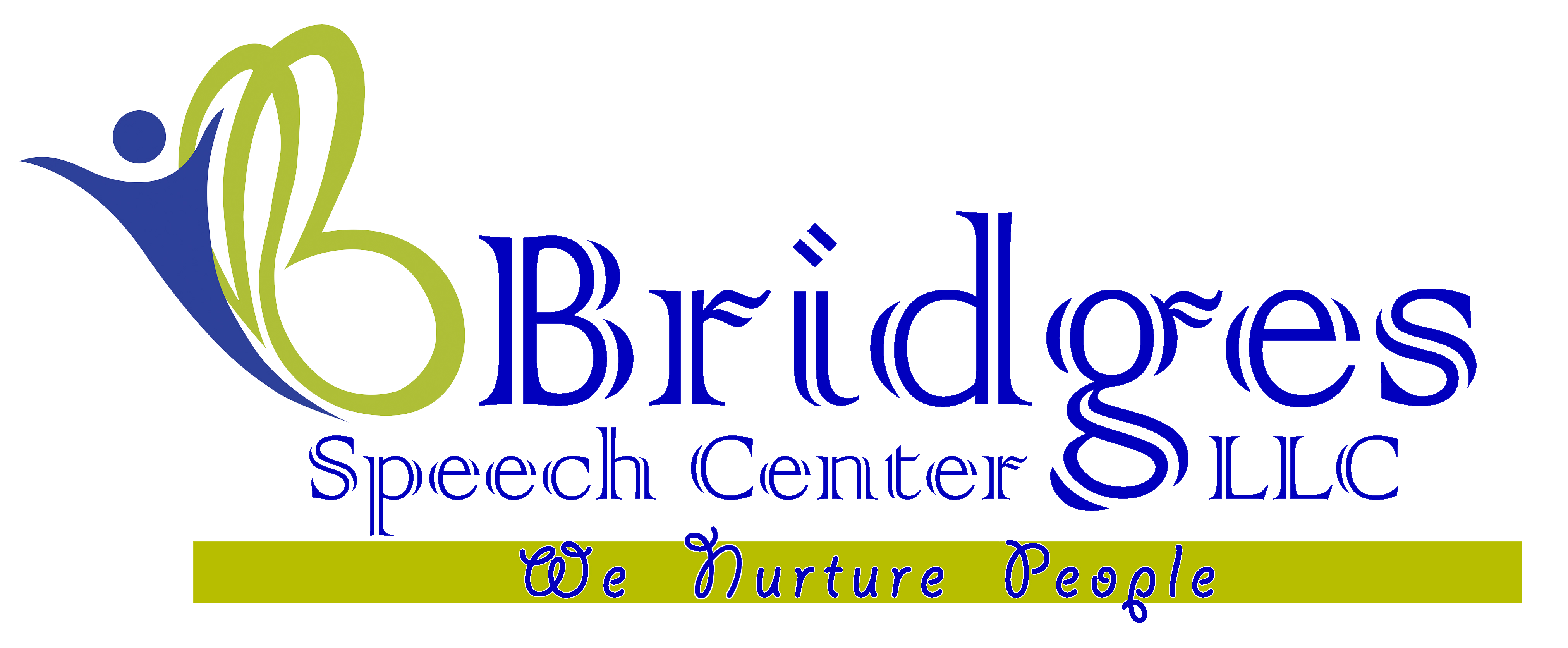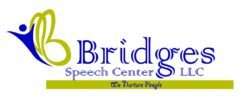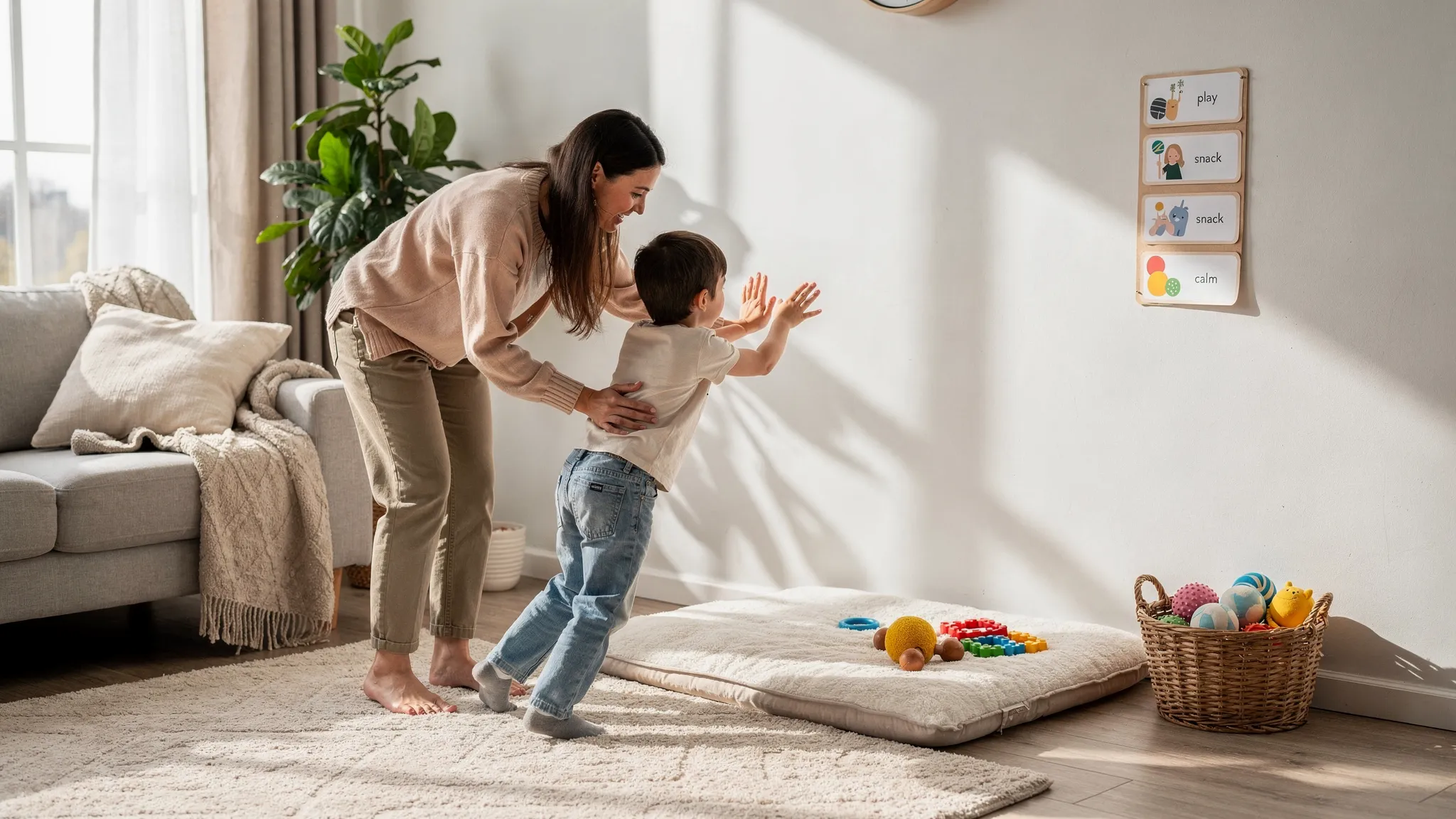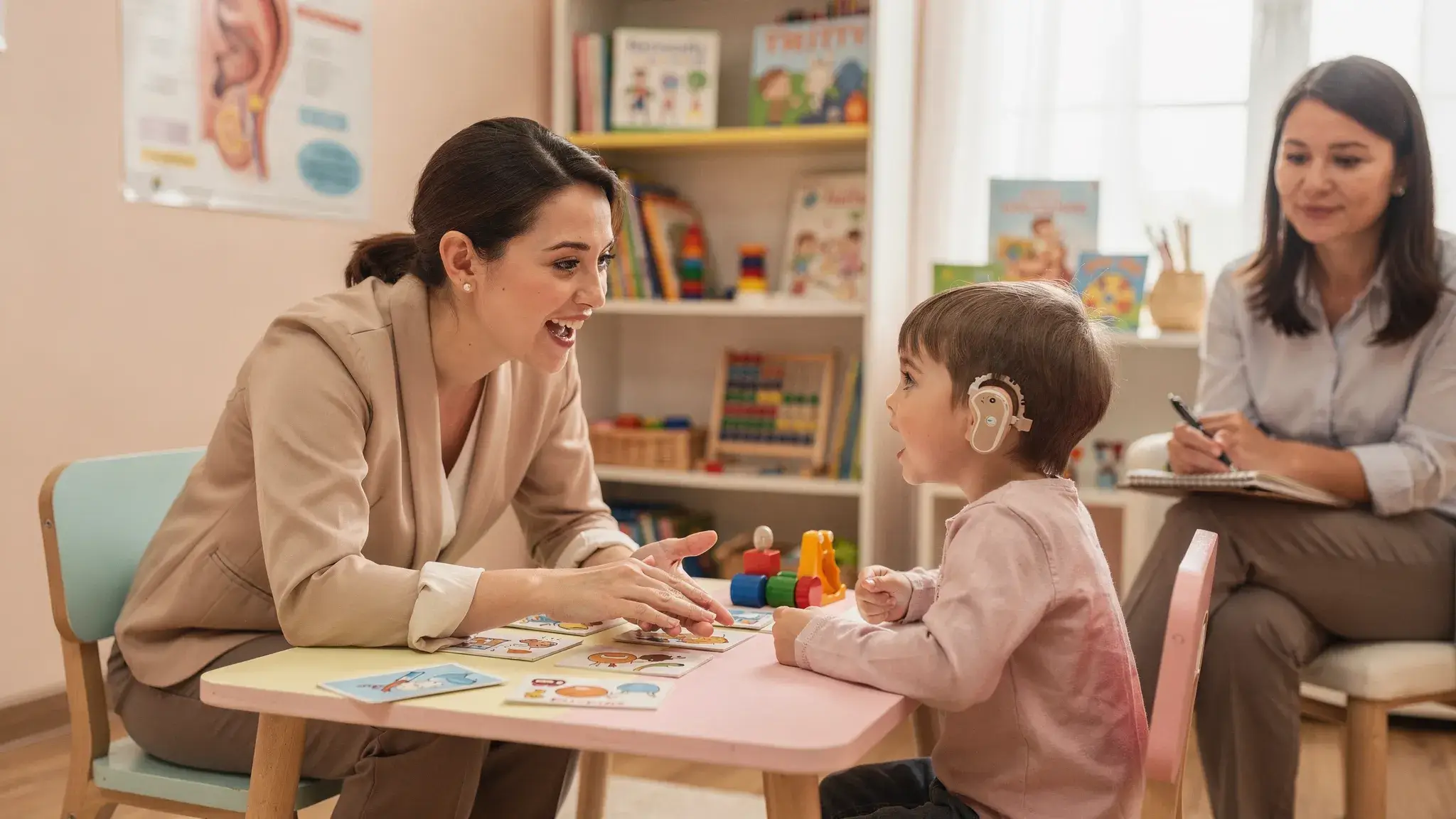- About Us
- Our Services
- Speech Therapy
- Speech and Language Therapies for Adults in Dubai
- Speech and Language Therapies for Children in Dubai
- Accent therapy
- Augmentative Alternative Communication (AAC) Therapy
- Articulation Speech Therapy
- Auditory Processing therapy/ Auditory verbal therapy
- Language Intervention: Speech Delay therapy
- Oral Motor Therapy
- Play Based therapy
- PROMPT/DTTC/RePT for Childhood Apraxia of Speech
- Social communication/Pragmatic language therapy
- Stuttering / Stammering therapy Program
- Spellography Program for Dyslexia
- Voice Therapy
- Home Care Services
- Feeding Therapy
- Physiotherapy
- Pediatric and Geriatric Physiotherapy
- Fall Prevention Programs for the Elderly
- Developmental Delay Treatment for Children
- Cerebral Palsy Management for Children
- Pediatric Orthopedic Conditions
- Osteoporosis Management for the Elderly
- Sports Injuries in Children
- Mobility and Balance Training for Elderly
- Joint Pain Treatment (Knee, Shoulder, Hip)
- Age-Specific Exercise Programs
- Coordination and Balance Exercises
- Orthopedic Physiotherapy
- Neurological Physiotherapy
- Sports Physiotherapy
- Cardiopulmonary Physiotherapy
- Women’s Health Physiotherapy
- Manual Therapy
- Therapeutic Exercise
- Pain Management
- Electrotherapy
- Ergonomic Consultation
- Tele-Physiotherapy Services
- Pediatric and Geriatric Physiotherapy
- Occupational Therapy
- Sensory Integration
- Clinical Psychology & Psychotherapy
- Cognitive Behavioral Therapy(CBT)
- ABA /Behavior Therapy
- Bridge Learning Program
- Group therapy
- Summer/Winter Program
- Telehealth Services
- Training Program/CEU
- Internship/ Observership
- Speech Therapy
- Super Team
- Collaboration
- Training Course
- News/Blogs
- About Us
- Our Services
- Speech Therapy
- Speech and Language Therapies for Adults in Dubai
- Speech and Language Therapies for Children in Dubai
- Accent therapy
- Augmentative Alternative Communication (AAC) Therapy
- Articulation Speech Therapy
- Auditory Processing therapy/ Auditory verbal therapy
- Language Intervention: Speech Delay therapy
- Oral Motor Therapy
- Play Based therapy
- PROMPT/DTTC/RePT for Childhood Apraxia of Speech
- Social communication/Pragmatic language therapy
- Stuttering / Stammering therapy Program
- Spellography Program for Dyslexia
- Voice Therapy
- Home Care Services
- Feeding Therapy
- Physiotherapy
- Pediatric and Geriatric Physiotherapy
- Fall Prevention Programs for the Elderly
- Developmental Delay Treatment for Children
- Cerebral Palsy Management for Children
- Pediatric Orthopedic Conditions
- Osteoporosis Management for the Elderly
- Sports Injuries in Children
- Mobility and Balance Training for Elderly
- Joint Pain Treatment (Knee, Shoulder, Hip)
- Age-Specific Exercise Programs
- Coordination and Balance Exercises
- Orthopedic Physiotherapy
- Neurological Physiotherapy
- Sports Physiotherapy
- Cardiopulmonary Physiotherapy
- Women’s Health Physiotherapy
- Manual Therapy
- Therapeutic Exercise
- Pain Management
- Electrotherapy
- Ergonomic Consultation
- Tele-Physiotherapy Services
- Pediatric and Geriatric Physiotherapy
- Occupational Therapy
- Sensory Integration
- Clinical Psychology & Psychotherapy
- Cognitive Behavioral Therapy(CBT)
- ABA /Behavior Therapy
- Bridge Learning Program
- Group therapy
- Summer/Winter Program
- Telehealth Services
- Training Program/CEU
- Internship/ Observership
- Speech Therapy
- Super Team
- Collaboration
- Training Course
- News/Blogs
Table of Contents
ToggleAuditory Processing Therapy / Auditory Verbal Therapy Treatment in Dubai
- Home
- Our Services
- Auditory Processing therapy/ Auditory verbal therapy
Auditory processing therapy and Auditory Verbal Therapy for children in Dubai
It offers a range of valuable benefits, focusing on optimizing auditory skills, language development, and communication abilities to children with hearing loss or Auditory processing deficits. Here’s an overview of the benefits:
Auditory Skill Development: Auditory processing therapy in Dubai employs a range of techniques to develop auditory skills in children with hearing loss or auditory processing deficits. Therapists utilize auditory training exercises, auditory discrimination tasks, and sound awareness activities to improve how children perceive and process sound. Through repetitive practice and targeted interventions, children learn to better interpret auditory information, leading to more effective communication and interaction with their environment.
Speech and Language Development: Auditory processing therapy goes beyond simply improving hearing abilities; it also focuses on promoting speech and language development in children. Therapists work on building phonemic awareness, enhancing vocabulary acquisition, and refining grammatical structures through auditory-based activities. By strengthening these foundational language skills, children can express themselves more clearly and confidently in verbal communication.
Auditory Discrimination: A fundamental aspect of auditory processing therapy is training children to discriminate between different sounds. This involves tasks where children identify and differentiate between similar speech sounds or environmental noises. By sharpening their ability to distinguish subtle auditory cues, children can better understand speech, follow directions accurately, and engage more effectively in conversations.
Auditory Memory: Memory plays a crucial role in language learning and communication. Auditory processing therapy includes exercises designed to improve children’s auditory memory skills, such as recalling sequences of sounds, words, or sentences. Strengthening auditory memory helps children retain and process information more effectively, leading to improved academic performance and communication skills.
Listening Skills: Listening skills are essential for effective communication and learning. Auditory processing therapy focuses on enhancing children’s listening abilities by teaching them how to actively engage with auditory stimuli. Therapists use techniques like auditory attention training and auditory closure tasks to help children focus their attention, filter out distractions, and comprehend spoken information more accurately.
Communication Confidence: As children progress in auditory processing therapy and experience improvements in their listening and language skills, they often gain confidence in their ability to communicate. This newfound confidence enables them to participate more fully in social interactions, express themselves more fluently, and advocate for their communication needs with greater assertiveness.
Integration of Hearing Devices: For children with hearing aids or cochlear implants, auditory processing therapy includes guidance on effectively utilizing these devices. Therapists work closely with children and their families to ensure proper device fitting, troubleshooting, and maintenance. By optimizing the use of hearing devices, children can maximize their auditory input and achieve better outcomes in therapy and daily communication.
Academic Success: Strong auditory processing skills are closely linked to academic success. Through auditory processing therapy, children develop the auditory processing abilities needed to excel in the classroom. They become better equipped to understand lectures, follow instructions, and participate in classroom discussions, leading to improved academic performance and a more positive learning experience.
Social Interaction: Effective communication is key to successful social interaction. Auditory processing therapy helps children develop the listening, language, and social skills necessary for meaningful interactions with peers and adults. By improving their ability to understand and express themselves verbally, children can build friendships, collaborate with others, and navigate social situations more confidently.
Parent and Caregiver Involvement: Parents and caregivers play a crucial role in supporting children’s auditory skill development. Auditory processing therapy includes educating parents about strategies and activities they can incorporate into daily routines to reinforce therapy goals. By actively participating in their child’s therapy journey, parents can help facilitate progress and promote consistent practice outside of therapy sessions.
Self-Advocacy: Through auditory processing therapy, children learn to advocate for themselves and communicate their needs effectively. They gain the skills and confidence to request accommodations, seek clarification when needed, and assertively express their preferences in various settings. This self-advocacy empowers children to take ownership of their communication journey and advocate for inclusive environments that support their auditory needs.
Auditory Awareness: Auditory processing therapy enhances children’s awareness of sounds in their environment. Therapists introduce activities that encourage children to actively listen for and identify different sounds, such as environmental noises, alarms, and voices. By developing greater auditory awareness, children can better navigate their surroundings, stay safe, and respond appropriately to auditory cues.
Long-Term Communication Success: The ultimate goal of auditory processing therapy is to equip children with the skills they need for lifelong communication success. By laying a strong foundation in auditory processing, language development, and communication skills during childhood, children can continue to build upon these skills as they grow and develop. With ongoing support and reinforcement, children can navigate various listening environments with confidence and achieve their full potential in communication and beyond.
Auditory processing therapy empowers children with hearing loss to make the most of their auditory abilities, promoting language development, communication skills, and overall quality of life. By optimizing their auditory skills, children can engage more fully in their world and achieve their potential.
Make Appointment
Testimonials
What Parents Say
Send us an email if you wish to talk to any of them. For more reviews, please go to Google reviews.

My experience with bridges speech centre has been great. My child is attending OT in the center and we are happy and proud with the progress Mrs. Richa has made. The therapists are very supportive and knowledgable in selecting techniques to suit with our child's requirements . Their monthly review and evaluation is remarkable. I highly recommend bridges speech centre to anyone looking for an affordable and professional therapy for their child....

We were asked to consult a speech therapist for my son. As parents we were quite skeptical about this whole process. However, once my son started attending Dr Rupali’s sessions we noticed a drastic improvement in his speech. He used to speak only a few words but within the 1st four sessions he started speaking up-to 5 words sentences. I also learnt to manage my child’s emotions better with Dr Rupali’s guidance. She is very cooperative and patiently answer all questions.

We took our 21 month old daughter to Bridges speech center following her cleft palate surgery as she needed Speech therapy. Ms.Rupali was recommended to us by both our Pediatrician and ENT specialist. The staff at Bridges are qualified, warm and friendly. My daughter loved to attend the speech therapy sessions. Through various techniques and simulations provided during these sessions, I can see considerable improvement in my daughter's speech. Lastly I would say, no child is same, as parents we need to be patient and trust the process.

Rupali was excellent. In just couple of sessions she helped my child overcome difficulty in pronouncing ch and sh sound. Thanks very much.Highly recommend for children who will need assistance in speech therapy.
Blog & Article
Our Latest Blog & Articles
Sensory Integration Therapy at Home for Children with Sensory Challenges
When a child gets overwhelmed by everyday sounds, refuses certain clothes because they...
Auditory Verbal Therapy vs Speech Therapy: What’s the Difference?
After a hearing screening, an ENT appointment, or even a note from school,...



